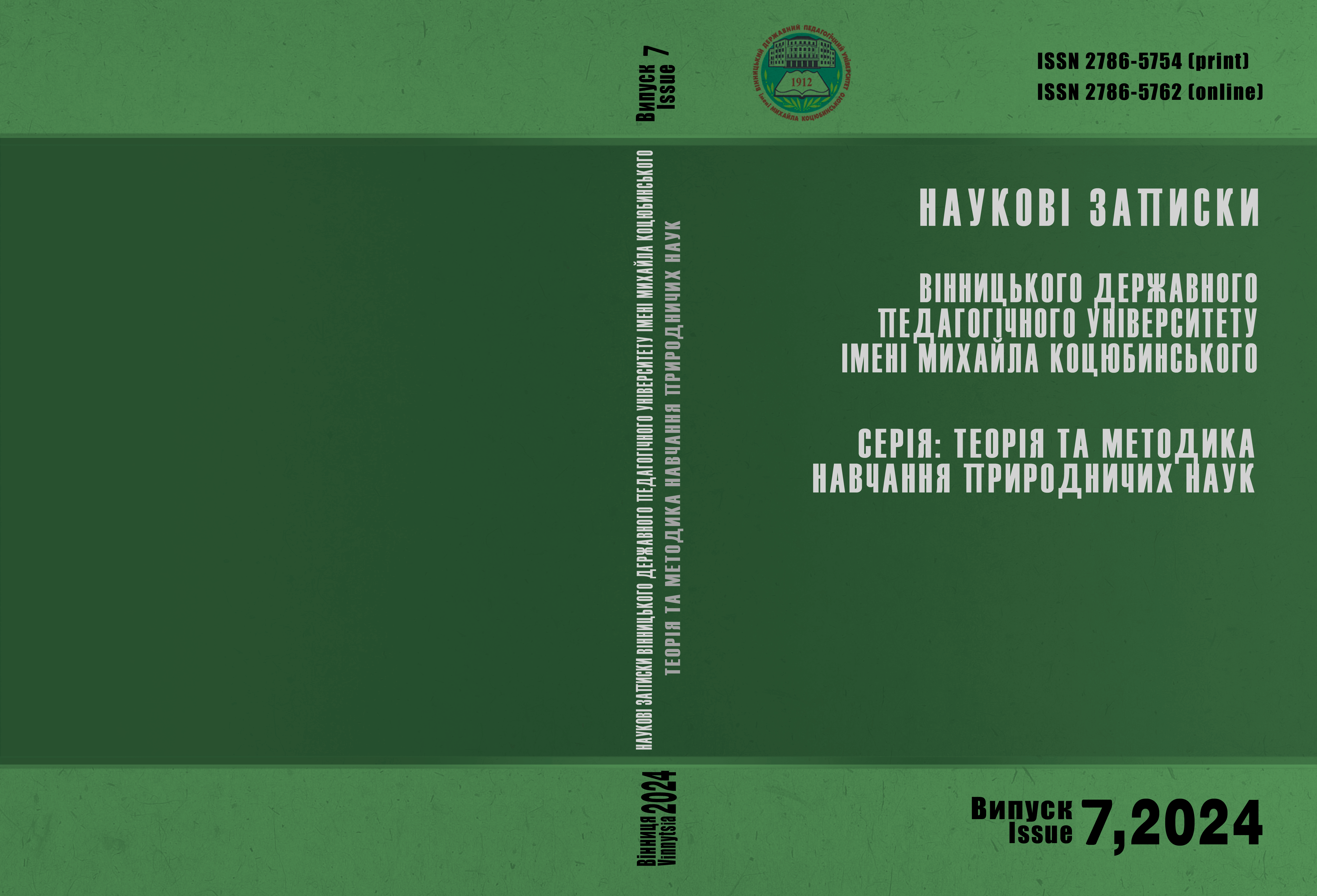Abstract
The article deals with an actual problem of the improvement of pedagogical education system, namely a new direction – STEM-STEAM-STREAM-education. The objective of the study is to outline the origins of the problem genesis, to analyze the essence and content of STEM-education, to identify the main problems and contradictions, to identify the main means of its implementation. Synergistic, systemic, competence-oriented and activity-oriented approaches have become theoretical and methodological foundation of the study. The conclusion about the expediency of STEM-STEAM- STREAM-education combining has been made on the basis of theoretical analysis of the problem and the students of higher pedagogical institutions questionnaires. It will allow to develop left and right hemispheres of a brain simultaneously, which will contribute to its holistic functioning. With the aim of formation of future natural sciences teachers’ key and subject competences the means of STEM- STEAM-STREAM-education have been determined. That is the implementation of environmental projects in the process of education. The essence and methodology of the following projects implementation have been characterized: «Plastic bottle – a valuable thing from the past or a useless thing of nowadays? », «Let’s save the Christmas tree together», «Destruction of nature», «Eco-feeder for our feathered friends», «Clean gullies – clear conscience». Enumeration of competences based on the reflection of students’ own activities, the formation of which is mostly facilitated by the mentioned project activity has been determined. Fulfilment of eco-projects has a positive effect on the development of components of innovative competence of the students of higher pedagogical institutions (the ability to apply scientific methods of cognition in the educational process, the ability to use innovations in professional activities, the ability to apply various approaches to solving problems in pedagogical activities). The prospects for further study consist in the research of the following problem: preparation of future natural sciences teachers for modeling of educational activity using STEAM-technologies and their significance in the methodology of forming a model of bioethical behaviour of school students on the basis of the concept of sustainable development.
References
Babiichuk, S. (2018). STEM-education in the USA: problems and prospects. Pedagogical journal Volyn, no, 1 (8), pp. 12-17.
Balyk, N & Shmyher, H. (2017) Approaches and peculiarities of modern STEM-education. Physical and Mathematical Education, no, 2 (12), pp. 26-30.
Besedin, B. & Smoliakov, O. (2018). Learning technologies of 21st century: STEM-education. Humanization of the educational process, no, 1 (87), pp. 76-84.
Hloba, O. (2021). Introducing the newest technologies into the educational process in the teaching of chemistry and biology in educational institutions. Scientific Bulletin of the Izmail State University of Humanities. Section Pedagogical Sciences, no, 56, pp. 73–81.
Karbovanets, O., Kuruts, N., Holub, N. & Maiorosh, A. (2008) Project method as a modern pedagogical teaching technology in educational establishments of various levels. http://archive.nbuv.gov.ua/portal/natural/Nvuu/Ped/2008_15/karbovanets42.pdf.
Kosohova, O. The method of projects in the practice of modern school. Kh.: Ranok Publishing House. (2011).
Krasinov, F. Well. Complex research experience. To help the teacher of the 1st stage school. M.: State. ed. (1922).
Kuzmenko, O. (2017). STEM education concept and areas of focus. Naukovі zapysky, vyp. 9, Ser. «Problemy metodyky fіz.- mat. і tekhnol. osvіty. Chas. KDPU. pp. 188–190.
Kyian, T. (2011). Project and research activities in extracurricular activities in biology. Biology, no, 2, pp. 17-20
Moroz, I., Stepanyuk, A., Honchar, O. et al. (2006). General methodology of Biology teaching: manual. K.: Lybid, pp. 25–38.
Polikhun, N., Slipukhina, I., & Chernetskyi, I. Pedagogical technology STEM as a means of reforming the educational system of Ukraine. Education and development of gifted personality, no. 3, pp. 5-9 (2017).
Stepanyuk, A. (2012). Formation of holistic knowledge of schoolchildren about wildlife. 2nd ed. Ternopil: Vektor.
Stryzhak, O., Slipukhina І., Polikhun N., & Chernetckiy I. (2017). STEM-education: main definitions. Information technologies and learning tools, no 62 (6), pp. 16-32
Ten advantages of STEM-education. Retrieved from: https://sites.google.com/site/karacunino79/stem-osvita-proekt-majbutnogo/10-perevag-stem-osviti.
The concept of development of science and mathematical education (STEM-education) Government portal. Retrieved from: https://www.kmu.gov.ua/npas/pro-shvalennya-koncepciyi-rozvitku- a960r.
The concept of development of pedagogical education. Retrieved from: https://mon.gov.ua/ storage/app/uploads/public/5b7/bb2/dcc/5b7bb2dcc424a809787929.pdf. Accessed 29 December 2021.

This work is licensed under a Creative Commons Attribution 4.0 International License.
Copyright (c) 2024 Alla Stepanyuk, Ludmyla Mironets, Tetiana Olendr, Mykola Zhyhadlo
